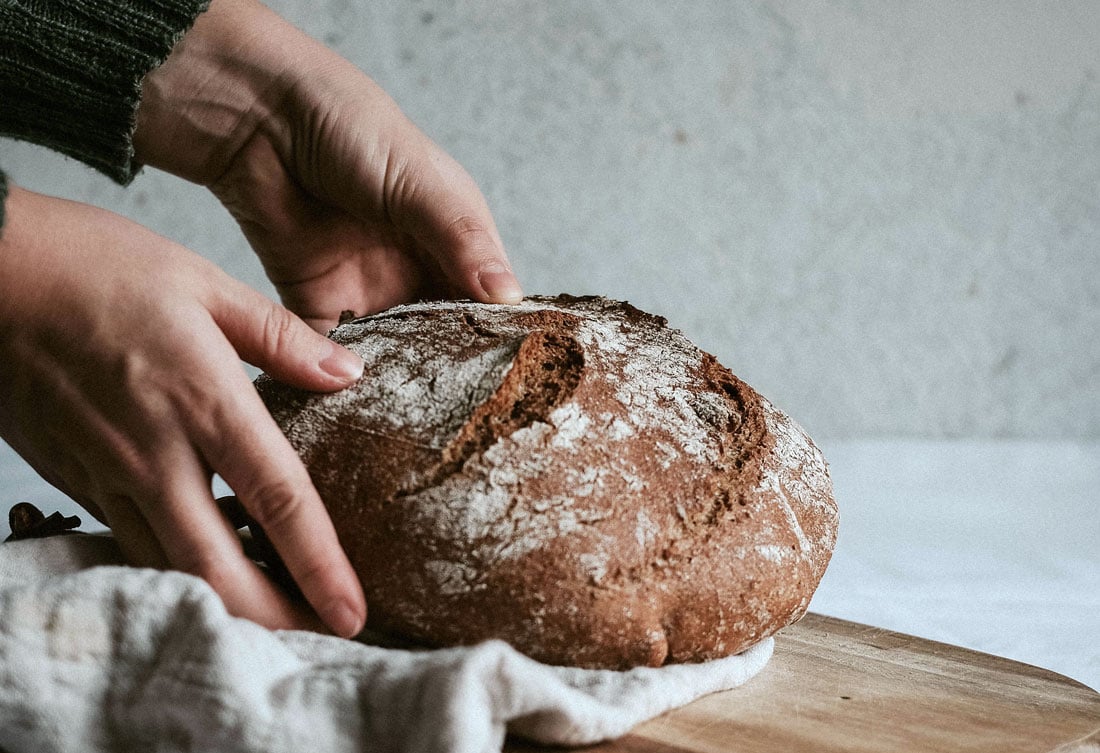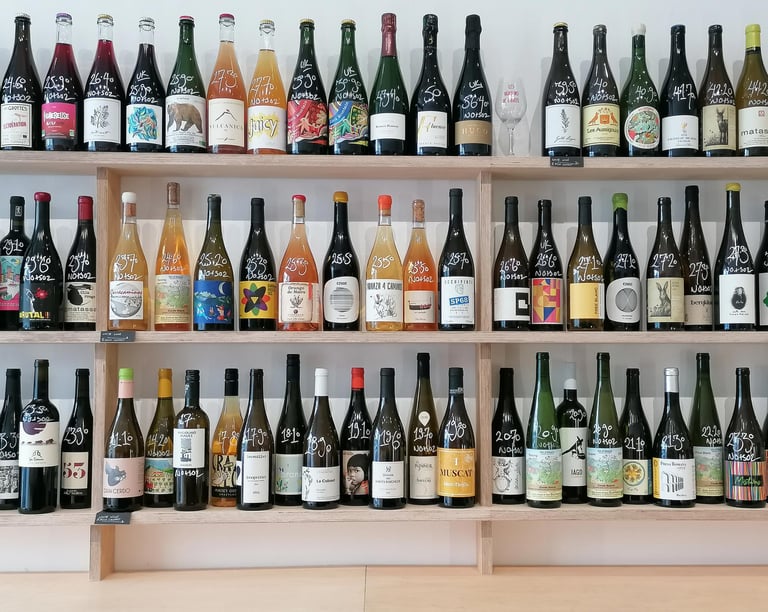As the popularity of sourdough continues to rise, so does the number of big businesses cashing in on the artisan-bread hype. Kathryn Lewis delves into the murky world of sourfaux and discovers why it’s better for people and the planet to pay more for the real deal
Supermarket product developers have always gleaned inspiration from the latest food trends, identifying what’s popular and rolling it out on a large scale. So, with the resurgence of independent artisan bakeries and the unwavering popularity of sourdough over the last decade, it’s no surprise they set their sights on the brunch staple.
Most supermarkets now have their own branded “sourdough” and those with bakeries boast about baking it in store. However, the long and labour-intense process of making genuine sourdough, which requires skill and patience, is the antithesis of the fast, mechanised nature of large-scale food production. From starter to finished loaf, the average sourdough takes around 24 hours to ferment, prove and bake – can supermarkets really be spending that time on each loaf and then sell it for under £2? Probably not.
There’s also the issue of ingredients. A basic artisan loaf can be made from just three: flour, water and salt. Pre-packaged mass-produced “sourdough” can have upwards of 15, while the contents of loaves from in-store bakeries is simply unknown because it’s not mandatory for retailers to display full ingredients lists for baked goods that are sold unwrapped.

‘It’s evident that many people are unsure about what goes into typical supermarket loaves,’ says Chris Young of Real Bread Campaign, a charity seeking to find ways to make bread better for people, communities and the planet.
‘An increasing number of products are being named and marketed using the word “sourdough” that have not been made by a long fermentation process. Some are manufactured using additives that the average consumer would not expect to find in sourdough bread,’ he adds.
The Real Bread Campaign is currently lobbying government for an Honest Crust Act which will introduce a clear and simple legal definition of sourdough. However, the matter of counterfeit carbs goes much further than a name – choosing genuine sourdough (described by Real Bread Campaign as: ‘a mixture – dough or batter – of water and cereal flour containing a culture of naturally occurring yeasts and lactic acid bacteria’) can benefit health, communities and the environment.

Good for the gut
The benefits of eating fermented foods for improved gut heath are well researched and the popularity of items such as kimchi, kombucha and kefir has soared as studies have revealed the importance of a healthy and diverse gut microbiome. There’s growing research that suggests eating genuine sourdough bread might also provide health benefits.
‘Researchers have found that fermented fibre promotes diversity of good bacteria to support a healthy gut,’ says registered nutritionist Jenna Hope.
There’s also research suggesting that those with gluten intolerance may find sourdough more digestible. Jenna says: ‘The slow fermentation process used in sourdough baking naturally starts to alter and break down gluten, which some people might find easier to digest than a standard loaf made using baker’s yeast and a shorter process.’
Most of these benefits are attributed to the changes caused by lactic acid bacteria in the live sourdough starter during the extended fermentation time, which is needed by the yeasts in the culture to make the dough rise. Sourfauxs (a term coined by Chris in 2015) are often made using baker’s yeast (in place of a live starter) and/or additives, which are usually added to cut production time and extend shelf life.
Community spirit
Paying a little more for a loaf at an independent bakery than you would at a supermarket will funnel money back into the local community via jobs and suppliers (most small-scale artisan bakeries source ingredients such as flour from UK producers).
However, quality sourdough isn’t cheap. That’s why Real Bread Campaign is working to take the community-support aspect one step further via its Real Bread for All initiative.
‘We’re exploring ways to bridge the gap between what it costs a financially sustainable neighbourhood bakery to produce genuine sourdough (and other real bread) and what people in its community on lower incomes can afford to pay,’ says Chris.
The Campaign’s in-bakery initiatives include a pay-it-forward scheme where better-off customers pay into a fund that subsidises bread for others, and a build-it-in principle where margins on discretionary items such as coffee and pastries are adjusted to enable a price reduction on bread.

Planet positives
Opting for genuine sourdough can benefit the planet too. Buying bread from a local independent bakery not only reduces transportation and packaging, but its ingredients are also often cultivated in a more planet-friendly fashion.
Fred Price of Gothelney Farm in Somerset helped to establish South West Grain Network, a collective of bakers, millers and farmers who are taking active steps to create an alternative grain economy that also protects the planet.
‘Traditionally, grain is traded as a commodity on a global scale and most UK farming is set up to maximise yield and scale, and keep costs down. It’s an intensive, industrial, synthetic-based system which is doing the environment absolutely no good,’ says Fred.
‘South West Grain Network was set up to connect farmers with like-minded local millers and bakers so they don’t have to be part of this global economy. Farmers who are maximising diversity and working with nature to create a productive and resilient ecosystem are able to sell their product into a much more localised market, where their farming approach is valued and where they’re paid a fair price.’
Fred thinks the entire system needs re-thinking: ‘To transition to ecologically minded food production we must begin to deconstruct many of the logics at the heart of our current food system. We have to imagine new ways of incorporating values that aren’t easily packaged up, while also embedding diversity and connectedness into our day-today decisions. For me, small food seems to be an easy win.’
Taking inspiration from UK Grain Lab in Nottingham, South West Grain Network is still in its infancy but is working to connect local grain producers to artisan bakers and, ultimately, to your bread board.
Dive into our roundup of the next-gen South West bakeries here.









